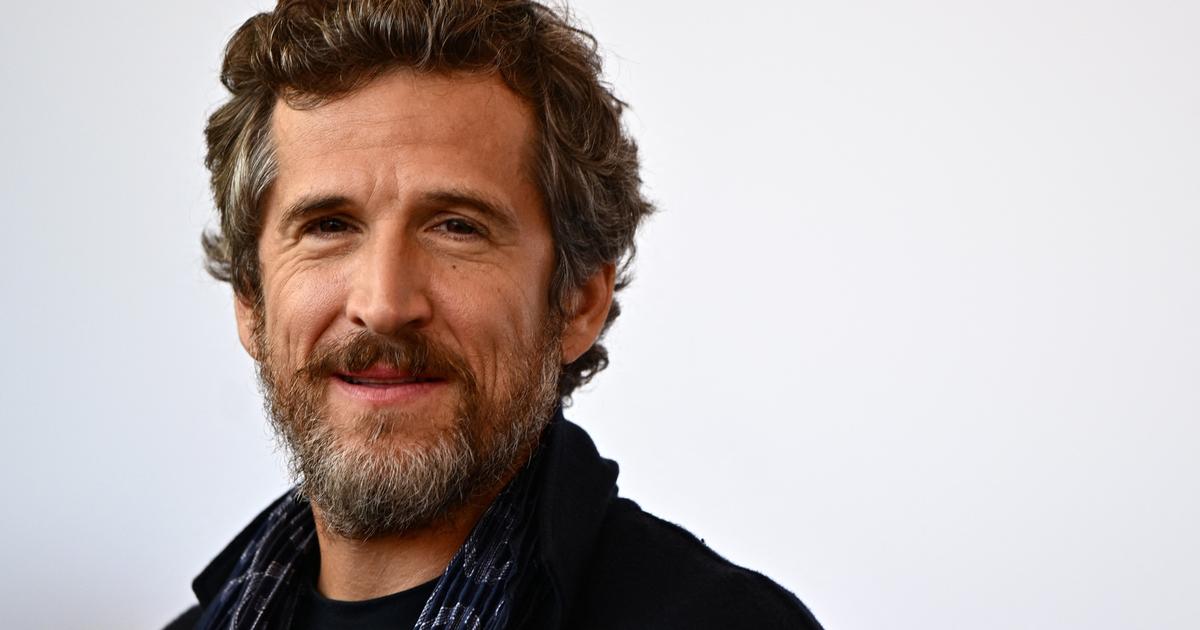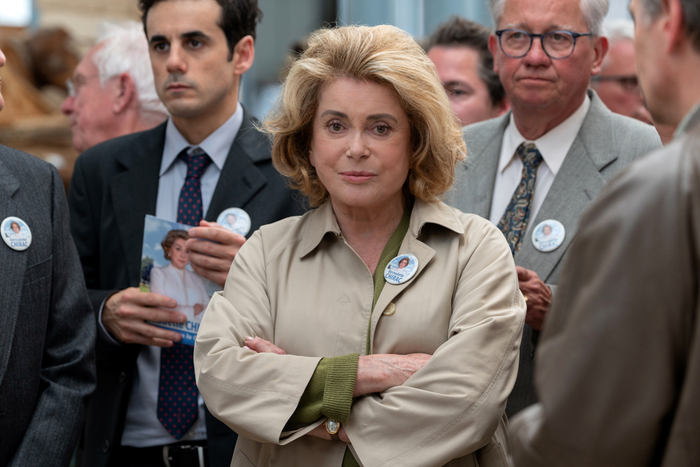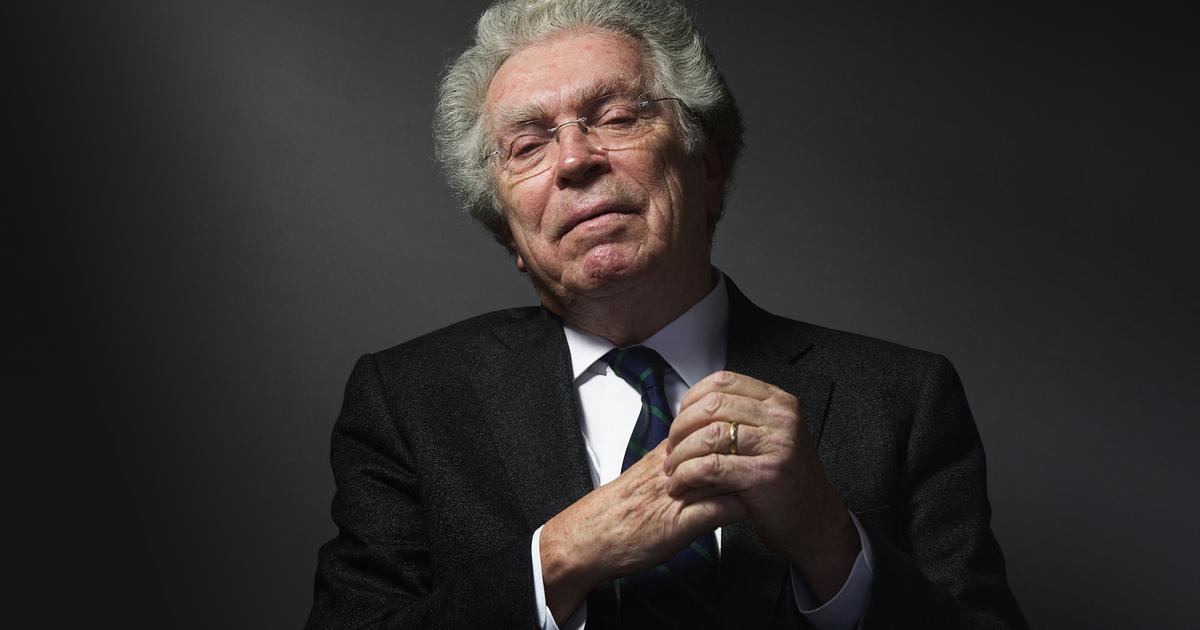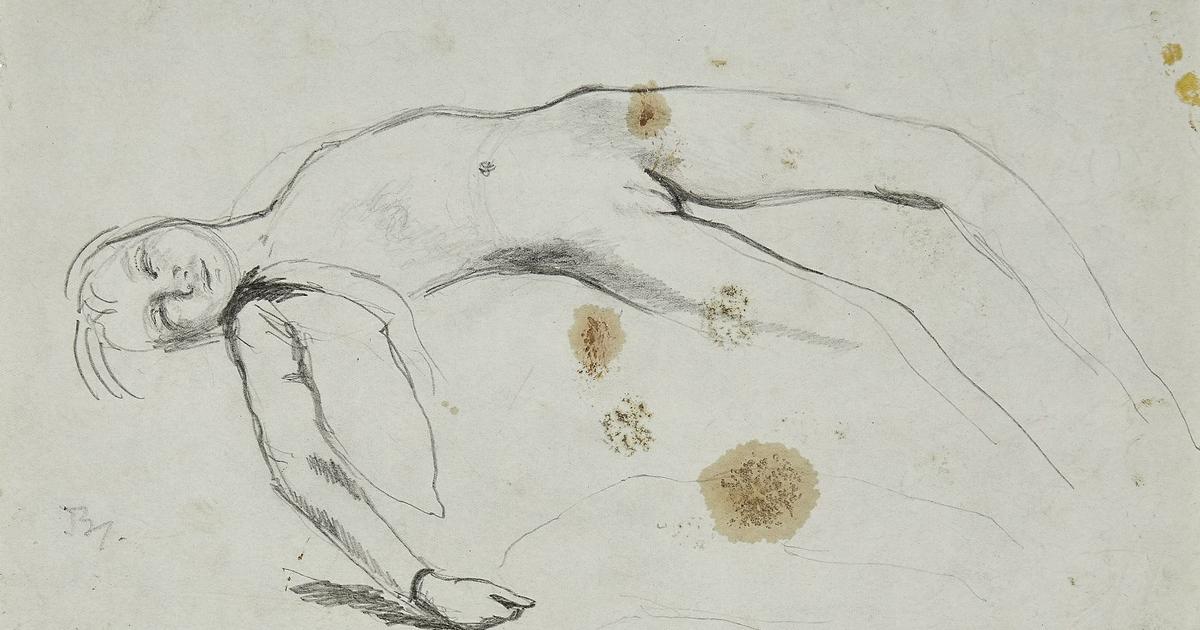During the gruesome and exhausting months in which the media reported daily on Harvey Weinstein's repeated abuse of women, I realized that I, like so many others, asked myself questions and talked about the men in my life: ex-boyfriends. , exacradores, exabusadores, extocones. My friends and I looked back intermittently, upset, at everything we had endured, everything we had kept quiet, and we observed around us the things that now bothered us. Throughout that fall and winter, we tell and retell our stories, reconsider them from a new perspective, and cautiously mention details we knew about other people's lives, murky memories, facts we hadn't discussed in years. We spoke with renewed rage and frankness, with a renewed sense of being empowered to do so ... and perhaps also with a renewed sense of naturalness. We questioned all the men who had passed through our lives, all forms of patriarchal power, but we rarely spoke of our parents.
Shortly after the allegations against Weinstein were made public, his wife, Georgina Chapman, announced that she was divorcing him. And it made me think: What about the daughters? One can, at least in theory, divorce a husband, but it is not possible to divorce a father.
In her poem Sunday Night , Sharon Olds tells how her father, when they ate as a family in a restaurant, carried
"her hand to the waitress's skirt
at the slightest occasion: hand, wrist,
forearm".
Olds notes that he never warned young women.
"Oops! He said, as if everyone
we will pass it
in big".
She fantasizes about sticking a fork in the father's arm, listening to "the squeal of muscle", feeling "the slip on the bone.
"Sometimes
I imagine I slip under my skirts
of the women my father offended, those
bells
mystery, those sacred roofed forests.
I want to sweep, clean, order ...
do something, clean that block
which is my father's mind. "
Sharon Olds' intention is to make amends: he wants to heal the wounds inflicted by his father; she wants to use language to restore dignity and beauty. Can words make time go back, undo damage? We wish they could, but who are we when we try? Whose skin do we write on?
***
In her autobiographical book Fierce Attachments , Vivian Gornick tells in horror that she feels consumed by her mother. It evokes intimate family relationships like contamination, infection:
"It gave me goosebumps. [...] Its influence clung like a membrane to my nostrils, my eyelids and my open mouth. It introduced it into me every time I inhaled air. I fell asleep within its anesthetizing atmosphere."
In this case, intimacy is a dangerous type of interpenetration; intimacy is narcotic, a threat to consciousness, wakefulness, alertness. The barriers are broken, or never established, and a merger occurs. We inhabit, transform and mimic our parents. We carry them inside; we are made of them, for better and for worse.
Sharon Olds, like Gornick, has written long and hard about her own life - about her parents, her husband, her children, her divorce - and has had to deal with heated reactions to these texts for years. Everyone assumes and insists that writing from experience is synonymous with nudity and vulnerability. And in a sense it is, largely because the conventions of language and sexuality that apply to women make them vulnerable to judgment, scorn, and violence. But the insistence on vulnerability that writing in the first person entails hints something else: it is a literary choice that not only strips, but also protects. Writing is a spell, conjures up a new person, and erects a protective wall. It is capable of generating a clear and fierce distinction between self and others. It enables the discovery of a way of "existing as oneself, and of relating to objects as oneself, and of having a person within whom one can withdraw for relaxation."
This is how the psychoanalyst Donald Winnicott described the experience of "feeling real", an experience that depends on a positive early education, on "good enough" maternal care. (His rhetoric reflects that historically it has been women who have borne the brunt of early education, although he stressed that the role of the good enough mother can be played by others.) For Winnicott, this good enough experience implied that the The mother gave herself in body and soul to the baby, who managed with flexibility the frustration and disappointment of the baby and who was able to tolerate and overcome its aggressions. The mother must be able both to reflect on the child and to resist its destructive impulses; he must be able to allow her to establish a "cruel relationship" with her, "benign abuse".
For parents, the great challenge of education is nurturing an environment that is, as Adam Phillips described in his book on Winnicott, "resilient and responsive enough to withstand the enormous impact of the primitive love drive" ... and the enormous impact of The agression. "For a child to grow in such a way that he can discover the deepest part of his nature," Winnicott wrote, "it is necessary that someone be challenged, and even hated at times [...] without the danger of a definitive break in life. relationship?".
***
Often criticism of the patriarchal family has come from white, middle-class feminists
There is a long, often antagonistic, relationship between feminism and the father. Frequently criticism of the patriarchal family has come from white, middle-class feminists, in particular, women historically trapped in the bourgeois home, eager to emancipate themselves from the family and enter the labor market. In 1938, Virginia Woolf forcefully used the figure of the father as opposed to the figure of work in her book Three Guineas . Her long essay deals with the access to the professional world of the "daughters of educated men", and she reflects on the repercussions of the 1919 law that allowed her: "The doors of private houses were opened".
Woolf herself was no stranger to the concept of the tyrant and possessive father; his father, Leslie Stephen, was the model that inspired him to describe the Victorian parents in his works of fiction: in The Years , in Night and Day , in The Lighthouse . Leslie Stephen had suffocating control over her daughters, especially over her stepdaughter Stella Duckworth, a control that was redoubled after the death of the mother, Julia Stephen.
Hermione Lee relates that, after Julia's premature death, Leslie Stephen "completely took over Stella as a substitute, and she allowed it." In Memories , a text written between 1907 and 1908, Woolf herself described it this way:
"I think Stella didn't even lose her composure for a moment during those months when your most overwhelmed grandfather was. [...] Sometimes, at night, Stella spent a long time alone with him, in his studio, listening over and over Perhaps the bitter story of his loneliness, his love and his remorse. "
Stella was the audience upon whom Leslie Stephen unloaded her grief, despite the grief that she herself suffered and that, by implication, the care of her stepsisters Virginia and Vanessa fell upon her. To top it off, Leslie punished Stella for trying to leave the family home to get married: her marriage was postponed several months due to parental anguish. In a 1939 text titled Memoir , Woolf recalled that time, as he did from time to time, with these words:
"How much it tortures and exacerbates the family structure [...] I think if I had gotten my father to say 'I am jealous' instead of 'you are selfish', the family atmosphere would have become more limpid and luminous."
No wonder Woolf pinned his hopes on the world of work as an antidote to the oppressive father. That was, in part, the thesis of A Own Room : it is the money and the independence of the family that allow a woman to write. And it is also the thesis of Tres guineas , where he postulates that if women are to exert a certain influence, an influence different from the vulnerable and dependent influence they exert within the patriarchal family, this will reside in the ability to hold in their hands "a new weapon, our only weapon, the weapon of independent opinion based on independent income. "
However, this hierarchy of the public over the private — of the freedoms that professional life offers over family restrictions — is intertwined with social privileges. As bell hooks wrote in 1984, "Many black women said, 'We want more free time to spend with the family, we want to leave the world of alienating work.' And the jobs to which less privileged women have always been relegated may not carry such a seductive promise of freedom.
In any case, Woolf is under no illusions about either world. She believes that the daughters of educated men are "between a rock and a hard place. The patriarchal system extends behind us; the private house, with its inanity, [...] its servility." And later, excited and disappointed at the same time, she maintains that "the public world, the professional system, with its obsession with possession, its suspicion, its combativeness, its greed" extends to us…, applicable terms, all of them , to Leslie Stephen. For women, both the public and the private are corrupt.
Tres guineas describes men's opposition to female forays into public life. When she wrote this essay, Woolf ruminated, with her usual mixture of curiosity and ambivalence in evaluating the work of other writers, Freud's ideas which at the time were gaining popularity in England. She describes parents as "grouped into societies, into professions," and reluctant to allow their daughters to work. "It seems that society was a father," she wrote, "and a father who was attached to child fixation, too."
The work, however, has not been the long-awaited refuge expected. In Revolutionary Parenting , Bell Hooks writes, "Women who fought for liberation and wanted to enter the world of work did not see it as an alienating world. Now they do see it that way." Public scrutiny of sexual harassment in the workplace has intensified in recent years, and with good reason, although this has focused mainly on the film and music industry, the political class and the media ... In the professions Woolf's. Can this renewed searching look be understood, among other things, as an account of the disenchantment of the white middle class towards the promise of emancipation that work offered?
***
Patriarchy - understood as the government of men in general, not just that of fathers - was once an essential issue in feminist discourse, its cornerstone, even
Patriarchy — understood as the government of men in general, not just that of fathers — was once an essential issue in feminist discourse, its cornerstone, even. As an organizational concept, however, it suffered some discredit due to the utopian universalism that characterized its formulation to a great extent: when diagnosing it as a simple problem, it seemed to require a simple solution. Just as the term "woman" was challenged - particularly by feminists of color, who pointed out its customary equation with "middle-class white woman" - so too were the other monoliths of feminism - such as patriarchy - falling apart progressively.
Post-feminism further undermined the ubiquity of patriarchy as a concept. In the 1990s - the decade of girl power and the stress that women's economic and social freedom depended on their desisting from criticizing gender relations - mentions of patriarchy - and feminism - sounded stale, outdated, and evoked all the ancient stereotypes associated with feminism: bitterness, asexuality, irritability.
In any case, contemporary feminism has once again embarked on reflection on the great concepts - capitalism, work, care - and the notion of patriarchy is re-emerging. It has been very present in the banners of the demonstrations after the inauguration of Donald Trump and is widely disseminated through products as instagrammable as t-shirts, mugs and cloth bags. It is on the lips of experts, commentators and politicians. It is again a hot topic.
But despite all the talk about patriarchy, has the father's feminism been forgotten? Parents, and by extension the heterosexual family, remain untouchable. The tireless advertising nonsense, whether of detergents or mortgages, often shows us how the members of a family - disinterested, cartoonish - gawk at the mandatory family milestones: marriage, affectionate exasperation towards dirty children, family car, signature on the line of points. And the cult of the family has transcended the heterosexual sphere, in large part because the right to form their own has been cruelly forbidden. The fight for marriage equality and equal parenting rights - the fight for equality for citizens - has been, and continues to be, necessary and pressing. Still, as Garth Greenwell asserts, that struggle carries a risk: the risk that the queer lifestyle has to be translated into understandable values and sanctioned by "those who hate queer ."
Furthermore, the battle for equality is fully compatible with the absence of political ideology around the family; After all, in the United Kingdom it was David Cameron who promoted equal marriage. In fact, the Conservative Party has long allowed itself a certain pinkwashing — an imposed cordiality toward non-heterosexual family systems — to emphasize its political liberalism, while developing punitive policies using "austerity" as an excuse. Cuts in family unemployment benefits have left many women caught up in abusive marriages; the "dorm rate" has been primed especially with weaker individuals, such as the disabled; and the limit of two children to obtain deductions, accompanied by the cruel "rape clause" that the reporting of violence requires in order to access tax exemptions, demonstrate how often the veneration towards the family goes hand in hand with an enormous ignorance about the vulnerability of individuals within their own family. In 2018, Conservative Minister James Brokenshire denied that austerity policies had contributed to the alarming increase in the number of homeless people since 2010, attributing it (among other causes) to "young people who, due to their sexual practices, are expelled from the family home. " A strategic homophobic attack to justify the brutal social policies of a party that throughout its history has demonstrated its fanatical hostility towards LGBT rights.
An "active" mother is a mother —values the tautology—, while an "active" father is a saint
Today, sentimental dads enjoy a great cultural cache. The new parents, so sensitive, proclaim their feminism as soon as they hold their newborn daughter for the first time. Overnight, they become heroic defenders of women's rights ..., although this defense is confused with the defense of the purity of their daughters; it has to do, in other words, with the identification of a predatory masculinity that the father recognizes but which she now denies; now that she loves a creature that she knows vulnerable to the violence of the dark soul of masculinity, she is able to perceive it. And the flattery that a father receives when he participates in the tedious and endless task of parenting - when he "helps" with the children, or "stays to take care of them" - shows to what extent the daily tasks and parental care endow the father of a halo of sanctity, while they go unnoticed, because they are taken for granted, when they are carried out by a mother. An "active" mother is a mother, the tautology is worth it, while an "active" father is a saint. How we like a good daddy.
Translation by Alberto Gª Marcos .
SEARCH ONLINE 'DADDY ISSUES'
Author: Katherine Angel.
Translation: Alberto García Marcos.
Publisher: Alpha Decay, 2020. On sale starting today.
Format: softcover (82 pages, 15.50 euros).
Find it in your bookstore









